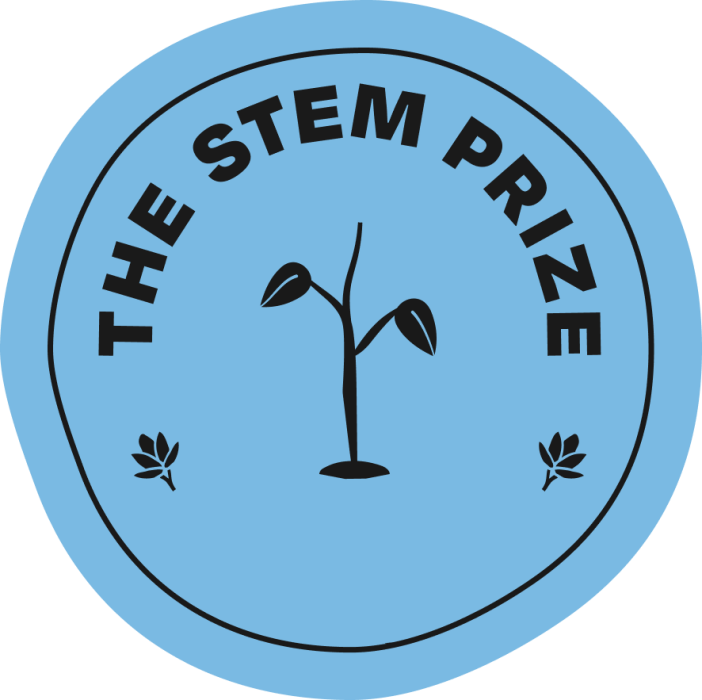Iris Prize
Awarded to an established project, with the potential to replicate and scale.
Bangladesh. GenGeo is dedicated to protecting endangered turtles in Bangladesh. It empowers youth through marine conservation training, promoting education and active participation in preserving marine life. (24 years old)
Philippines. Dulungan Conservation and Eco-learning Hub targets the conservation of the critically endangered Rufous-headed Hornbill, or ‘Dulungan’. This project emphasizes biodiversity conservation through community-led restoration, combining education with practical efforts and offering alternative livelihoods to address environmental and socio-economic issues. (23 years old)
Rwanda. Ecorebirth is led by students from the Rwanda Conservation Agriculture Institute, focusing on forest restoration and protecting threatened plant species. The project develops toolkits, establishes a nursery, and emphasizes ecosystem restoration and community engagement. (23 years old)
Jamaica. Unicycle Jamaica/Come Mek Wi Dance is led by school students in Jamaica, focuses on addressing textile and fashion waste through circular economy principles. (18 years old)
Bolivia. Uru Uru Team focuses on leveraging traditional indigenous knowledge to protect and restore territories, preserving cultural heritage while addressing environmental challenges. It integrates indigenous wisdom with scientific knowledge, is youth-led, and deeply rooted in the local community. (21 years old)
Nigeria. LightEd connects waste management with energy challenges in Africa, offering practical, scalable solutions for rural areas. This project addresses both issues simultaneously, with the potential for significant impact across the continent. (24 years old)
Cambodia. ReMade in Cambodia addresses the aftermath of the Cambodian genocide by linking historical trauma to current environmental issues like textile waste. It offers innovative, circular economy solutions and showcases the power of young leaders. The project plans to scale up with a recycling and sorting centre. (25 years old)
Stem Prize
Awarded to an existing project, established on a small scale (16-24)
México. Viaje al Microcosmos de Nuevo León a youth-led project in Nuevo León using data-driven strategies for river conservation. It tackles industrial environmental challenges and empowers teenagers with citizen science tools through “The River Stewards Project,” promising significant impact on freshwater ecosystems. (24 years old)
Tanzania. Grass Underwater uses the Transect Method and GPS, involving local communities in monitoring efforts to establish a protected seagrass zone and install demarcation buoys. They host workshops with educational materials in Kiswahili and English to ensure broad community engagement. (21 years old)
Indonesia. YSC Indonesia addresses raw sewage pollution by installing Tripikon-S septic tanks in Bandar Lampung coastal homes, faecal contamination before it reaches the ocean. (23 years old)
Sierra Leone. Tiwai Honey Initiative by Bangs Circular is an IP23 seed prize runner-up. The project addresses bee population decline by promoting sustainable beekeeping around Tiwai Island Wildlife Sanctuary. It trains local communities, provides bee-keeping resources, and restores natural habitats through reforestation and conservation. (24 years old)
Pakistan. Bridging Technology and Agriculture is a smart soil moisture sensor project that tackles water insecurity by conserving water and improving agricultural yields. Shortlisted for its innovative technology, the project aims to scale up to benefit more farmers in Southern Punjab. (16 years old)
Canada. Cultura is an app that aims to tackle the agricultural crisis in North America by providing farmers with insights into planting, fertilisation, and harvesting while reducing waste. It offers live weather alerts and financial tracking. (18 years old)
Colombia. La Chiva Climática brings climate education to communities via a mobile workshop, empowering young environmental leaders. Combining youth activism, environmental education, and indigenous knowledge, it has a successful pilot and clear expansion plans, promising to promote climate literacy in marginalised communities. (23 years old)
Seed Prize
Awarded to a new idea, not yet established (14-24)
South Sudan. Sustainable Charcoal Production For Environmental Conservation and Economic Growth introduces briquette charcoal from waste materials like coconut shells and sawdust to reduce tree cutting and environmental degradation. The project balances environmental conservation with socio-economic development, promoting a sustainable future for South Sudan through close monitoring and evaluation. (22 years old)
Taiwan. Gaoshifo Recovery Program aims to preserve the indigenous Kuskus plant that is in decline. This conservation effort not only safeguards biodiversity but also wants to drive tourism to the region to visit the conservation efforts. By maintaining a stable population of rare plants, they want to ensure their resilience and prevent disruption to the ecological balance. (19 years old)
Indonesia. Aqua Revive aims to enhance river water quality by introducing effective microorganisms using mud balls as carriers. By establishing a thriving microbial colony, this solution outcompetes and suppresses the growth of harmful bacteria. (17 years old)
Chile. Salvando un Fósil Viviente: Proyecto de Conservación de la Rana Chilena / Saving a Living Fossil aims to monitor amphibians and environmental issues. The app lets users report Chilean frog sightings and alert authorities about threats like fires. Combined with wetland restoration, it offers a comprehensive approach to conserving the Chilean frog and its habitat. (24 years old)
Mexico. Escuelas por la vida / Schools for life builds a community to defend nature preservers’ rights. Schools for Life uses a “train the trainers” approach to integrate the Escazú Agreement, training youth leaders to spread this knowledge in mostly indigenous communities and promote the Agreement’s implementation. (24 years old)
Peru. Ichhu hampinapaq is an ecological restoration plan to rehabilitate grassland and scrubland near Cusco through native plant revegetation. The project includes nurseries and promotes sustainable practices, addressing biodiversity loss with community engagement. (24 years old)
Guatemala. Guardianas del Estuario: Fortaleciendo la Participación Femenina en la Pesca Sostenible / Estuary Guardians: Strengthening Female Participation in Sustainable Fisheries is the idea of training fisherwomen in the monitoring and biological aspects of fishing resources is commendable. This intergenerational project includes their knowledge in research and policy-making, supports their income, recognises their work, and promotes mangrove restoration. (23 years old)
Colombia. Turberas para el futuro / Peatlands for the Future restores and conserves neglected peatland ecosystems through a scientific and community-based approach. It empowers local communities with traditional and scientific knowledge, focusing on South America’s often-exploited peatlands. (23 years old)



